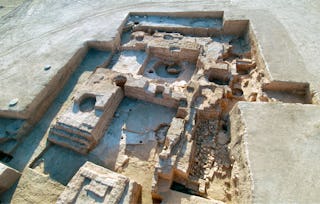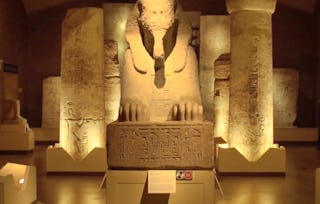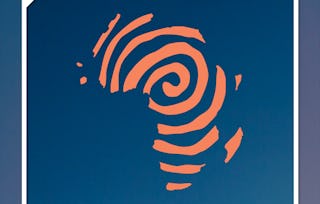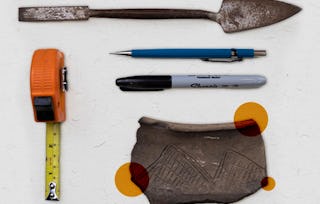Which are the deepest roots of that mix of cultures that we use to call ‘Mediterranean Civilization’? Which are comminglings and exchanges which produced its most complete fruit, i.e. the city, a place for landscape-modelling communities? And which elements did contribute to build up that baulk of customs, ideas, and innovations which compelled to confrontation and hybridizations different peoples for millennia? What did it made, from pottery to metallurgy, from gastronomy to architecture, from art to religion, of a sea a cradle of civilization? Archaeology may help in disentangling such questions, seeking unexpected answers , by tinkering what ancient Mediterranean peoples left buried in the ground. A privileged point of view of our course is the ancient Phoenician city of Motya, located exactly at the centre of the “sea in the middle”. Throughout the live experience of excavation, with images taken on the field, this course will let you touch the many tesserae of the great mosaic of the Mediterranean Civilization. The field diary of the archaeologist, and the handpick will be the two tools, which will lead us across the sea to discover what such early cities actually were, and how their contribute is still a major part of our shared memory.

Ends soon: Gain next-level skills with Coursera Plus for $199 (regularly $399). Save now.

At the Origins of the Mediterranean Civilization: Archaeology of the City from the Levant to the West - 3rd-1st millennium BC

Instructor: Lorenzo Nigro
20,373 already enrolled
Included with
(428 reviews)
Skills you'll gain
Details to know

Add to your LinkedIn profile
9 assignments
See how employees at top companies are mastering in-demand skills

There are 8 modules in this course
What's included
4 videos1 reading1 assignment
What's included
3 videos1 reading1 assignment
What's included
3 videos1 reading1 assignment
What's included
3 videos1 reading1 assignment
What's included
4 videos1 reading1 assignment
What's included
3 videos1 reading1 assignment
What's included
3 videos1 reading1 assignment
What's included
3 videos1 reading2 assignments
Instructor

Offered by
Explore more from History
 Status: Preview
Status: PreviewSapienza University of Rome
 Status: Preview
Status: PreviewUniversity of Pennsylvania
 Status: Free
Status: FreeUniversitat Autònoma de Barcelona
 Status: Free Trial
Status: Free TrialRice University
Why people choose Coursera for their career




Learner reviews
428 reviews
- 5 stars
66.58%
- 4 stars
23.83%
- 3 stars
6.54%
- 2 stars
2.10%
- 1 star
0.93%
Showing 3 of 428
Reviewed on Apr 13, 2020
Some of the lectures were difficult to understand ( names and places) and the translation texts were incorrect. Good course otherwise, enjoyed it!
Reviewed on Jan 5, 2021
I really enjoyed this hands on approach to teaching. the professor was enlightening and entertaining and passionate about the subject. loved it being on site most of the time8
Reviewed on Mar 13, 2021
This was a great course, it was great to be out 'on location' with the archaeologists and Lorenzo Nigro. There was also a great selection of reading material which offered more in-depth information.

Open new doors with Coursera Plus
Unlimited access to 10,000+ world-class courses, hands-on projects, and job-ready certificate programs - all included in your subscription
Advance your career with an online degree
Earn a degree from world-class universities - 100% online
Join over 3,400 global companies that choose Coursera for Business
Upskill your employees to excel in the digital economy
Frequently asked questions
To access the course materials, assignments and to earn a Certificate, you will need to purchase the Certificate experience when you enroll in a course. You can try a Free Trial instead, or apply for Financial Aid. The course may offer 'Full Course, No Certificate' instead. This option lets you see all course materials, submit required assessments, and get a final grade. This also means that you will not be able to purchase a Certificate experience.
When you purchase a Certificate you get access to all course materials, including graded assignments. Upon completing the course, your electronic Certificate will be added to your Accomplishments page - from there, you can print your Certificate or add it to your LinkedIn profile.
Yes. In select learning programs, you can apply for financial aid or a scholarship if you can’t afford the enrollment fee. If fin aid or scholarship is available for your learning program selection, you’ll find a link to apply on the description page.
More questions
Financial aid available,

